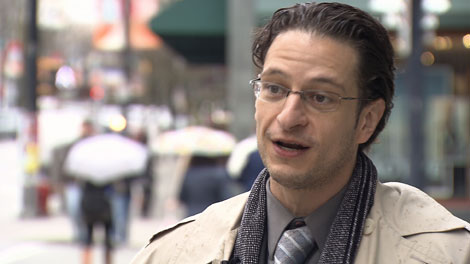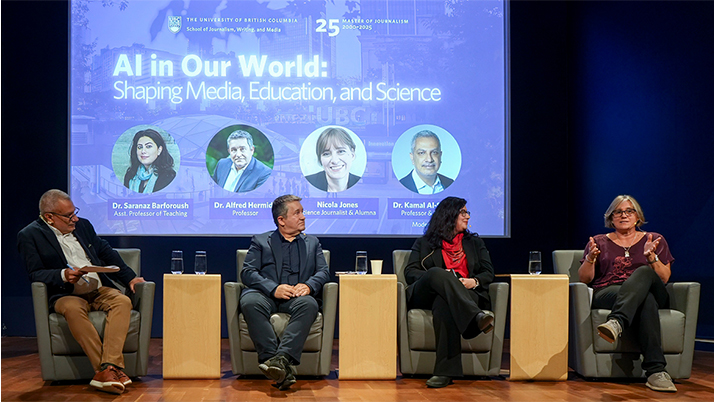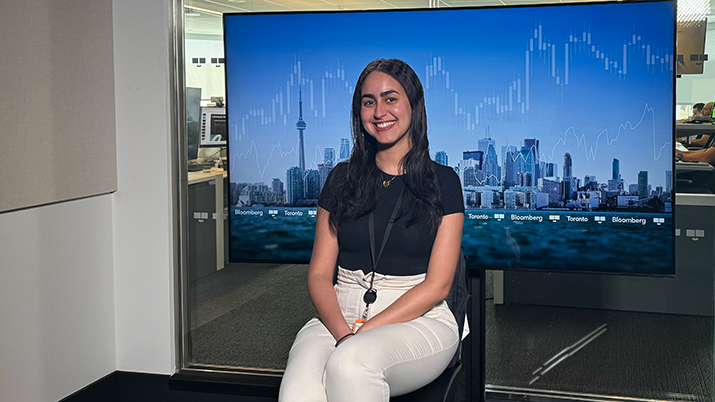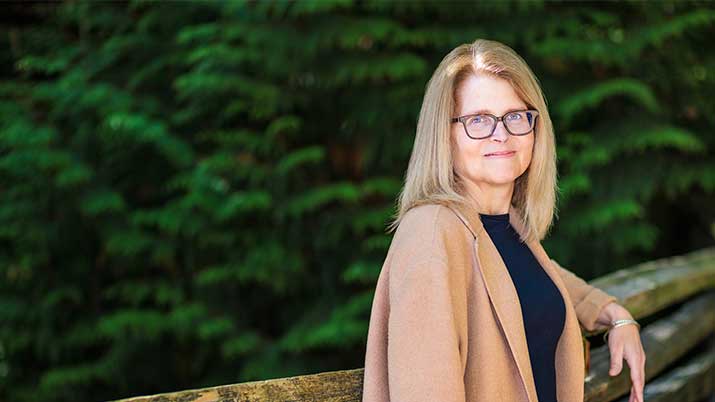

Mario Canseco graduated from UBC’s School of Journalism in 2002. He is President of Research Co., and has analyzed and conducted public opinion studies since 2003, designing and managing research projects for clients across the private and public sectors, as well as non-profit organizations and associations.
At the time of this interview in April 2014, he was working as Vice-President at Angus Reid Public Opinion, a public opinion research company headquartered in Vancouver.
Canseco reflected on his time at UBC and how it has prepared him for a career in public opinion research:
About why did he choose the j-school:
As somebody who was working as a radio reporter in Mexico mostly focusing on sports and a little bit on politics, I was attracted to the School of Journalism more than anything because of the high level of prominence ethics was at given the time. I read the scope of the ethics course taught by Stephen Ward and I felt this was the one place I wanted to study journalism in. I was a little bit tired of the whole situation of just getting the story and driving in Mexico City from one place to the other so you could get to talk and interview interesting people. I wanted to take a little bit of time and figure out what was interesting about the job and whether I wanted to continue doing it.
I was really happy with the opportunity to learn from such great people at the school and to always review the situation that was in front of us within the scope of fairness and detachment. That was something we learned to do very well in ethics and the law [course], and it’s a lesson that is still with me today.
The most interesting lesson I think the school gave me is that there are ways to apply what we learn as journalists to any facet of life. Even if my job is not the one I thought I was going to have when I came to the school — as far as writing in a newspaper or being in front of a camera or doing something for the radio — it is the lessons that I learned at the school of journalism that have allowed me to do the job that I do now. I was able to look at the challenges that I face as a public opinion researcher from the mindset of a journalist, and that’s something that accompanies me everyday and will continue to be there for the rest of my life.
About his internships:
My first internship was with Time magazine. My application for the internship ended up in the hands of the Mexico City editor for Time magazine, who was putting together a special issue on Mexico, so I went back to Mexico City — where I am from originally — and worked for Time magazine on that special issue.
I held two other internships: one of them was with Global National, working as a researcher. That eventually led to another internship at CTV, this time working for a show called Mason Lee: On the Edge. The show was hosted by a brilliant journalist, Robert Mason Lee, and was really fun and engaging.
About his experience as Peter C. Newman’s research assistant:
I had the immense privilege of working as Peter C. Newman’s research assistant when he was putting together his book about Brian Mulroney. This was a big challenge in the sense of having to go through 70,000 pages of information. These were basically interviews that Peter had conducted with Brian Mulroney all the way from the ’70s up to 1995. I had to go through a lot of information without even being able to talk about this with anybody. It was a very secretive project because of the explosive nature of the comments that Mulroney had made to Peter throughout the course of two decades.
It was a fascinating exercise in the sense of actually reviewing what was being said, choosing the right quotes and the right things to portray a story and looking at the way Mulroney felt about Canada before he became Prime Minister or in the early stages of his tenure.
About his life after the j-school:
I started working with Angus Reid in March of 2003, barely a year after graduation. I worked as a research associate basically looking at elections around the world and following public opinion with a special emphasis in Latin America, Europe, and North America.
In December 2004 I joined the company that Angus was creating at the time, which is where I’ve been working for the past seven years on a variety of projects. My duties include designing of questionaries, analyzing findings, covering elections and also talking to the media to disseminate our findings. We’ve analyzed more than 20 elections in North America trying to get a sense of how people are going to vote, and we’ve been mostly successful in all of our electoral predictions.


